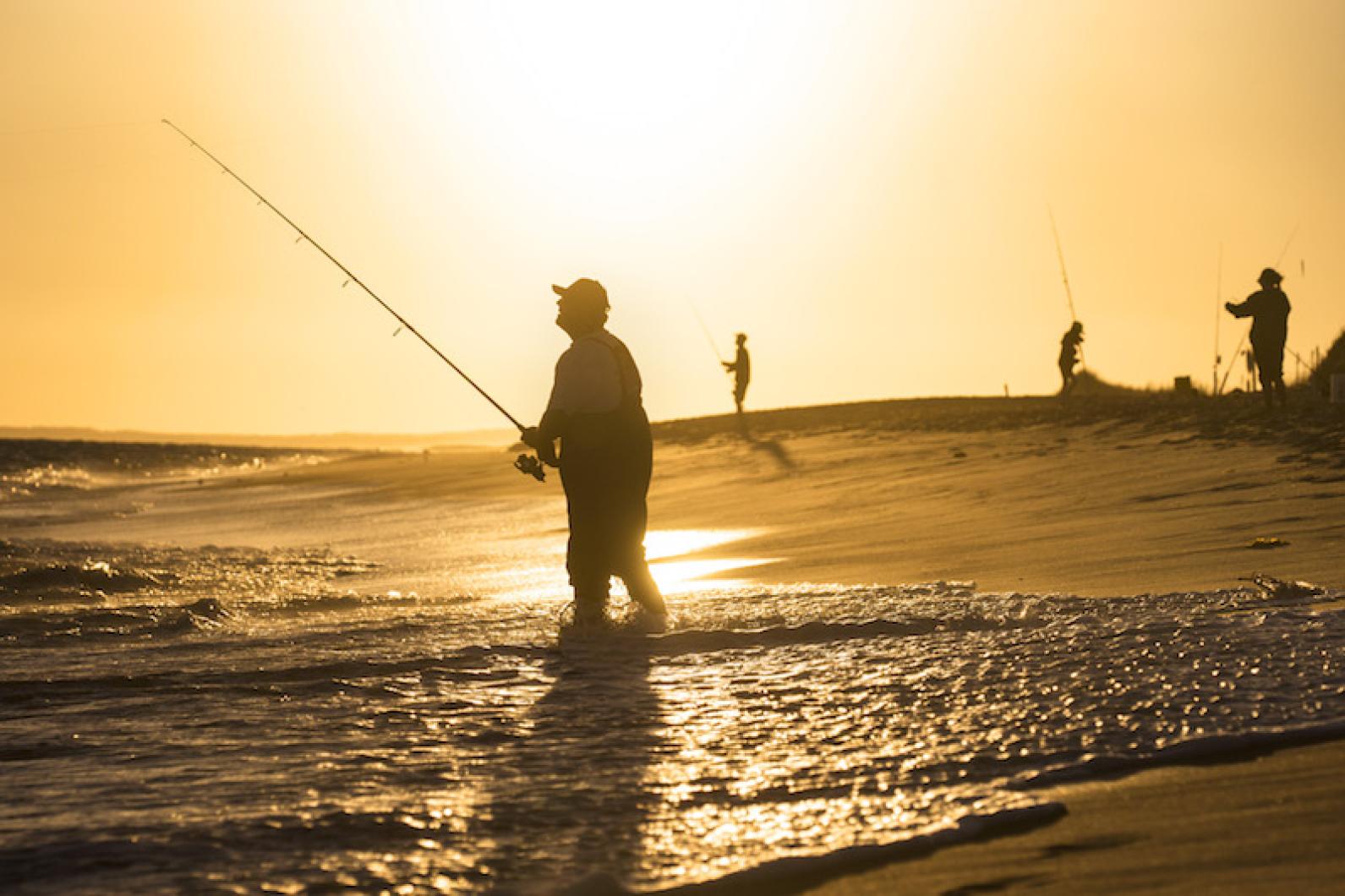From the April 25, 1975 edition of the Vineyard Gazette by Joseph Chase Allen:
When the talk runs to bait the oldtimers all know that under certain conditions fish can be finicky! We know it, and all hands know it if they have fished many years with pot or hook and line.
Anciently, the hand liners salted menhaden, cutting the fillets from the bone, washing and salting them as carefully as if they were going to eat ‘em themselves. For why?
Because if any rust showed on such bait the mackerel wouldn’t have anything to do with it, they said.
Potting eels, the bait had to be seined fresh every cussed day and be fresh and sweet when it went into the pots. Otherwise the eel, which is the cussedest scavenger in the ocean, would turn up his nose at it!
So, the bait for any and all free swimming ocean fish was always something that was a natural food for ‘em: crab, squid, winkles, or what-have-you. Back as far as anyone ever stood along the wake of time, only an occasional tradition ever mentioned a man meeting up with ary a grain of success if he tried anything else.
But ‘tis only lately, and we mean lately, that anyone has landed many cod or fluke with an artificial bait, and now, for cripes sake, some of these rod-and-reelers won’t use anything else; maybe because a metal jig is cleaner? We dunno, and that’s a fact, but the heft of ‘em have average luck alongshore.
We figure that chasing up this matter can be interesting, for sure as hell will scorch a feather there has to be something astern of it all, and we cruised last week, asking questions of our partners of the tide.
Sailing from our Skiff’s Island office in the darkest morning that we ever saw at the end of the dog watch, we made Oak Bluffs and docked at Church’s Pier to gam Cap’n Tony Sabollia, who is saturated with ancient lore learned from an old grandfather he once had.
“What,” says we to Tony, “did your old grandfather ever have to say about using artificial bait, if anything?”
“Um — well,” says he reflectively, “he never had anything to say about it that was complimentary!”
“He said that one Guilherme Rezendes cut up a green calfskin into strips once and went out and landed a hundredweight of bonito and he thought he had it made. The next day not even the dogfish would look at the calfskin, and my old grandfather says, ye gods, that when bait was scarce, even the fish would take whatever might be offered, being hungry, but when the bait came back, that was what they preferred. I figure he was right!”
We figured the same way. It seems reasonable, but it doesn’t explain why a cussed codfish will take any notice of a lead jig when he could load up with his natural grub!
So hauling our wind we made Menemsha Creek and the Basin where we boarded Cap’n Everett Poole at his northerly establishment on the mole.
“Tell us,” says we, “if you have ary theory about why fish are biting better alongshore on tin jigs than they will on honest bait.”
“Now,” says Everett, as he injointed one of his cigars and touched a torch to it, “I don’t think you are being quite fair to the fish when you talk about honest bait. It could be that the fish are beginning to realize that bait, in and of itself, is not honest at all, but is a cussed delusion and a snare. Why hell’s bells, it was that thought that started me to using chum back in Fourteen Hundred and Something.”
“Tell us more,” says we.
“Belzebub Bosworth, who was an Indian, and probably the best fisherman in the colony, got after the others and prodded ‘em. Says he: ‘You chop up a squid into eight or ten baits maybe, and you figure you ought to land a fish on every one, maybe more than one fish. ‘Taint right! Why don’t you give the fish the best end of the deal once in a while? They will think more of you if they get a slab of squid now and then that doesn’t have a cussed hook into it!’ Repentance Athearn agreed with him and started out to heaving away a bucket or two of bait every time he anchored to fish and so the notion began and took hold.”
“None of this has anything to do with artificial bait,” says we. ”What we want to know is why the beginning of it and maybe, when!”
Says Cap’n Chet Cummens, “I’ve told you how we used to feed salt pork to a whale when we whaled-it in the Indian Ocean. The critter hung about the ship and attracted other whales, which we reduced, as it were, and we never touched the decoy, you see.
“Other whalers got on to it and, salt pork being expensive, they filled tin cans with slush, punched a hole in the lids to let some of it seep out, and every cussed thing in the ocean swarmed around at the sight of a bright piece of tin. I cal’late that’s how it started and spread.”
Somehow be blowed if that explanation satisfies us. Be cussed if we believe that a whale can talk to codfish and even if he did, we doubt if the cod would believe him!
Compiled by Hilary Wall
library@mvgazette.com




Comments
Comment policy »